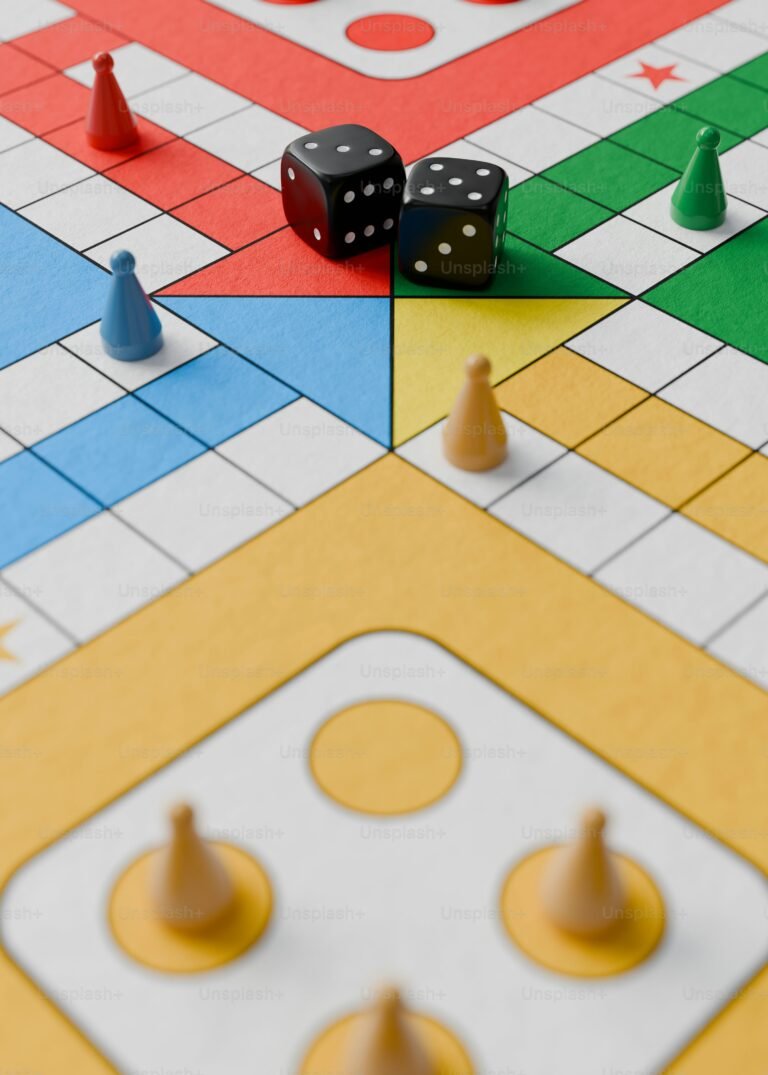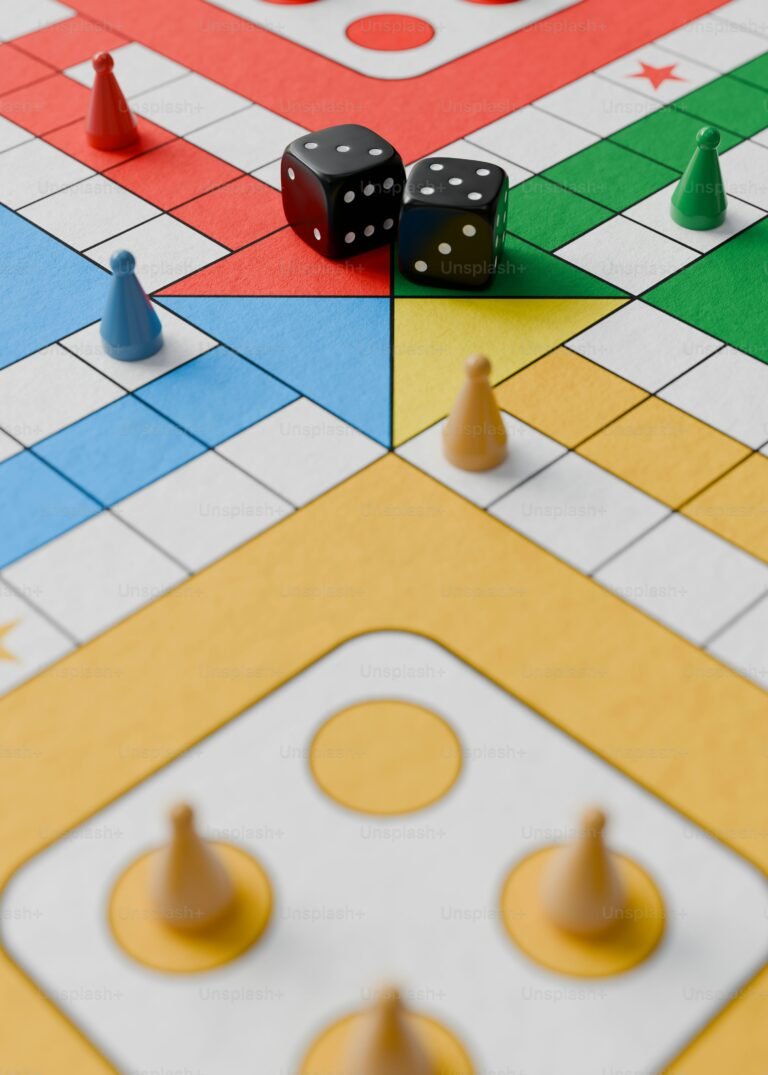
Traditional Ludo Pakistan is more than just a game—it’s a vibrant thread in the cultural fabric of the nation, weaving together families, friends, and communities for generations. Rooted in the ancient Indian game of Pachisi, Ludo has evolved into a beloved pastime in Pakistan, played in homes, at gatherings, and even during festive occasions like Ramadan and weddings. This expository blog post explores the rich history, cultural significance, gameplay mechanics, and modern adaptations of Traditional Ludo Pakistan, offering insights into why this board game remains a timeless favorite. Whether you’re a seasoned player or new to the game, discover why Ludo holds a special place in Pakistani hearts and how it continues to thrive in the digital age on platforms like Ludo.pk.
The Origins of Traditional Ludo Pakistan
A Legacy from Pachisi
The story of Traditional Ludo Pakistan begins with its ancestor, Pachisi, a game that traces its roots to 6th-century India. Known as the “game of twenty-five,” Pachisi was played on cloth boards with cowrie shells and tokens, often enjoyed by royalty, including Mughal Emperor Jalaluddin Akbar, who famously used his harem as live pieces on a grand Pachisi court. This ancient game made its way to Pakistan, where it was simplified into the modern Ludo we know today. Patented in England in 1896 as “Ludo” (from the Latin word meaning “I play”), the game retained its core mechanics but adopted a square board and a single die, making it accessible to players of all ages.
In Pakistan, Ludo became a household staple following the country’s creation in 1947, brought over by families migrating from India. It quickly embedded itself in the cultural landscape, becoming a symbol of togetherness and nostalgia. From rural villages to urban cities across Punjab, Sindh, Khyber Pakhtunkhwa, and Balochistan, Traditional Ludo Pakistan is a unifying force, transcending linguistic and regional differences.
Why Traditional Ludo Pakistan Is a Cultural Icon
A Game for Every Generation
Traditional Ludo Pakistan is a cultural icon because it fosters connection across generations. Grandparents, parents, and children gather around colorful Ludo boards, rolling dice and strategizing to move their tokens home. The game’s simplicity—requiring only a board, a die, and 16 tokens (four per player)—makes it accessible to players as young as ten and as old as ninety. Its universal appeal lies in its blend of luck and strategy, where a single roll can change the game’s outcome, keeping everyone engaged.
In Pakistani households, Ludo is synonymous with family traditions. It’s a common sight during Ramadan, where families play late into the night after iftar, creating cherished memories. Weddings, too, are incomplete without a lively Ludo session, where friends and relatives compete in a friendly yet fierce rivalry. This cultural significance is evident in how Ludo boards are often passed down as heirlooms, with intricate floral designs or dual-sided boards featuring Snakes and Ladders, reflecting Pakistan’s artistic heritage.
Nostalgia and Social Bonding
For many Pakistanis, Traditional Ludo Pakistan evokes nostalgia. It’s a game that reminds players of childhood, of rainy afternoons spent outmaneuvering siblings or cousins. The game’s ability to bring people together—whether at a family gathering or a casual hangout with friends—makes it a cornerstone of social life. As one Reddit user noted, “Ludo is widely popular in Pakistani households. Almost everyone I know, knows how to play it.” This widespread popularity underscores Ludo’s role as a social glue, fostering laughter, competition, and storytelling.
Unlike modern video games, Ludo requires no screens or gadgets, making it a refreshing escape from the digital overload of today’s world. It’s a game where players focus on each other, not devices, creating moments that linger in memory—like the time a parent sent a child’s token back to the start, sparking playful banter. These interactions strengthen family bonds and make Traditional Ludo Pakistan a timeless tradition.
How to Play Traditional Ludo Pakistan
The Basics of the Game
Traditional Ludo Pakistan is a strategy board game for two to four players, each assigned a color (red, green, blue, or yellow) and four tokens. The objective is to move all four tokens from the starting square to the home triangle in the center of the board, following a clockwise path determined by the roll of a single die. The Ludo board is a square with a cross-shaped path, each arm divided into three columns of six squares, with a central home area and colored starting zones at each corner.
The game begins with players rolling the die. A roll of 6 allows a player to move a token out of their starting area onto the board’s starting square. From there, tokens move clockwise based on the die’s value. If a player’s token lands on a square occupied by an opponent’s token, the opponent’s token is sent back to their starting area, adding a layer of strategy and excitement. Safe squares, often marked with a star, protect tokens from capture. In some Pakistani variations, two dice are used, allowing for backward movement or combining die values for strategic moves.
Strategies for Winning
While luck plays a role in Traditional Ludo Pakistan, strategic thinking can tip the scales. Here are some tips to enhance your gameplay:
- Spread Your Tokens: Instead of focusing on one token, move all four tokens to create multiple threats and increase your chances of capturing opponents’ tokens.
- Use Safe Zones: Position tokens on safe squares to protect them from capture, especially when nearing the home triangle.
- Block Opponents: Place tokens strategically to block opponents’ paths, slowing their progress and giving you an edge.
- Prioritize Home Stretch: As the game nears its end, focus on moving tokens into the home triangle rather than chasing captures, as reaching home earns significant points.
These strategies, combined with the unpredictability of the die, make every Ludo match a thrilling blend of planning and chance.
Traditional Ludo Pakistan in the Digital Age
The Rise of Online Ludo
While Traditional Ludo Pakistan thrives in its physical form, the digital age has given it new life. Online platforms like Ludo.pk have transformed Ludo into a global phenomenon, allowing players to compete with friends or strangers across the world. These platforms offer skill-based variations, such as time-limited matches or point-based systems, adding fresh excitement to the classic game. For instance, apps like Zupee and Ludo King enable players to start with tokens already in play, eliminating the need for a 6 to begin, and introduce cash rewards for skilled gameplay.
Digital Ludo retains the core rules but enhances accessibility. Families separated by distance—say, a cousin in Lahore and another in Karachi—can play together in real-time, maintaining the game’s social essence. Platforms like Ludo.pk also offer tutorials and practice modes, making it easy for beginners to learn and experts to refine their strategies. The rise of online Ludo has also made it a source of entertainment and income, with apps offering cash prizes for top players.
Balancing Tradition and Innovation
The shift to digital doesn’t diminish the charm of Traditional Ludo Pakistan. Physical boards, often paired with Snakes and Ladders, remain a staple in Pakistani homes, valued for their tactile appeal and nostalgic designs. Meanwhile, online versions cater to a fast-paced lifestyle, offering convenience without sacrificing the game’s spirit. This balance ensures that Ludo remains relevant, whether played on a colorful cardboard board or a smartphone screen.
The Enduring Appeal of Traditional Ludo Pakistan
Traditional Ludo Pakistan is more than a game—it’s a cultural bridge connecting past and present, young and old, tradition and innovation. Its simplicity makes it accessible, while its strategic depth keeps players hooked. From festive gatherings to quiet evenings, Ludo brings people together, creating memories that last a lifetime. As one player shared, “Ludo is the only activity we take part in as a family,” highlighting its unique ability to unite.
Whether you’re rolling dice on a traditional board or tapping a screen on Ludo.pk, the joy of Ludo lies in its ability to spark laughter, strategy, and connection. As Pakistan continues to embrace both its heritage and technological advancements, Traditional Ludo Pakistan stands as a testament to the enduring power of simple pleasures. So, gather your family, roll the die, and let the race to the home triangle begin!



